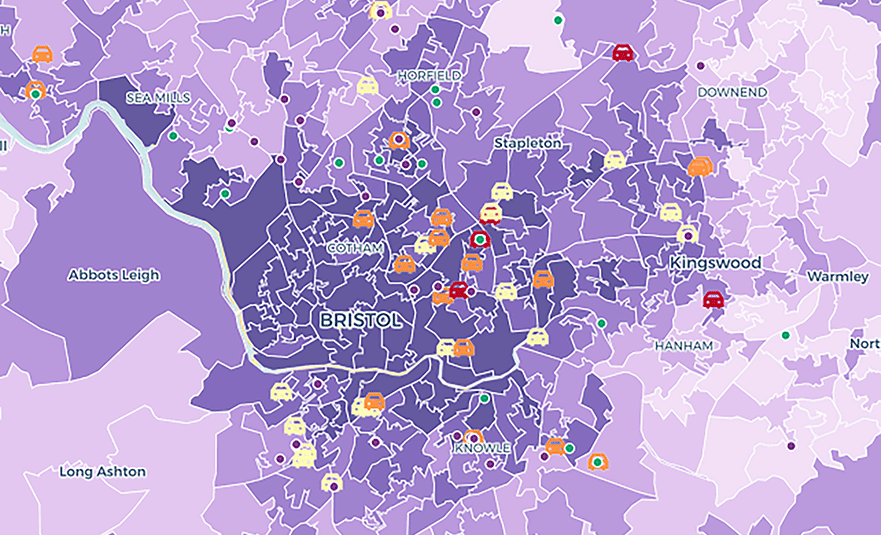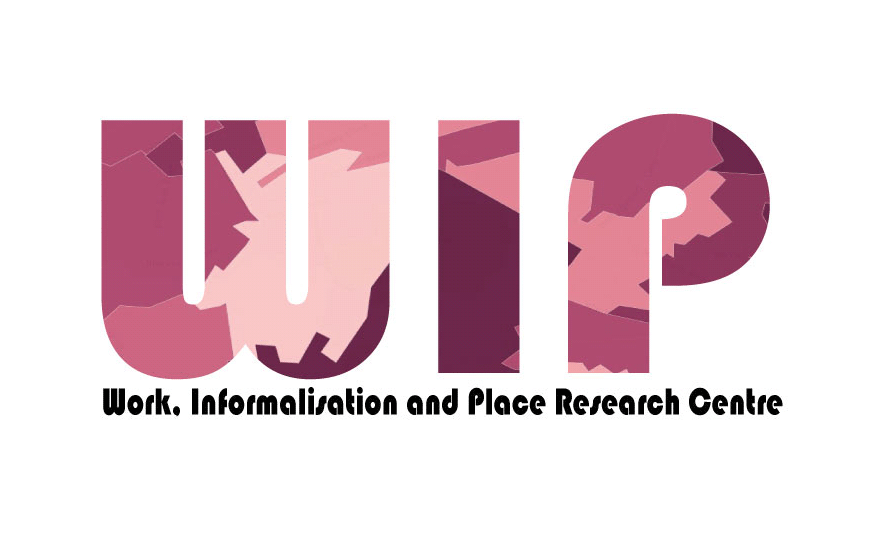How has Covid-19 affected the informal economy?
A new AHRC funded project 'Vulnerabilities to Modern Slavery? Predicting the presence and location of informalised workplaces in the context of the Covid-19 pandemic' begins at NTU
Published on 16 December 2020
Categories: Nottingham Civic Exchange; Research; Nottingham Business School; School of Social Sciences;

This project carried out by the Work, Informalisation and Place (WIP) Research Centre will explore the impact that the Covid-19 pandemic has had on a range of businesses within the informal economy sector and help identify the extent of modern slavery that occurs as part of their operation. WIP provides methodologically innovative interdisciplinary studies of contemporary work and employment in sectors such as hand car washes, nail bars, and small-scale garment manufacturing.
Informalised workplaces present a unique challenge when assessing the impact that the Covid-19 pandemic has on their workplace practises. Without a universal framework of enforceable regulation and inspection, workers are more vulnerable to having their rights eroded by employers. Recent headlines of the garment industry based in Leicester have highlighted factory owners overlooking the rights of their workers in order to profit in an increasingly lucrative fast fashion industry. Although the informal economy constitutes some 2.5 million workers and contributed 12% of Britain’s GDP since 2016, many within in the sector suffer from wage theft, lack of holiday pay and pension contributions and unsafe working conditions.
In response to the measures to Covid-19, many businesses have either shut or moved their workers out of public spaces such as offices and shops in order to help isolate. This had led to a fall in scrutiny by the public of the worker's conditions and coupled with the increased demand in some sectors of the economy that is driven by informal labour many are facing an even greater risk of exploitation.
The informal economy poses several risks for workers making them vulnerable to the forces of modern slavery. Exploitative, and in some cases unlawful, employer practices include wage theft, long working hours, child labour, unsafe environments, and a coercive relationship between the employer and employee. Migrant workers are particularly vulnerable to the informal economy and modern slavery if they lack legal documents and are thus ineligible for protection under UK employment law.
The project aims to understand the impact of restrictions on movement associated with Covid-19 on unregulated informal business activity and associated employment practices. The methodology uses Google Street View and Ordnance Survey Points of Interest to collect data on informal business locations. Using Google and Apple mobility data, the project compares the patterns of movement of people before and during the lockdown. The pre-lockdown data is used as the baseline and is compared with the lockdown data to produce + and – figures using logistical regression analysis. By mapping the location of informal businesses and calculating the changes and continuities in population movement, the study will produce predictions of those areas that are likely to see continued or growing unregulated informal work and risks to modern slavery.
In addition to the changes in population movement during the lockdown, the project looks at understanding the socio-economic factors and levels of deprivation of different areas that relate to the presence of informal work and make certain areas more vulnerable to modern slavery. The economic impact of lockdown on local economies, businesses, and household incomes is an important factor to consider in predicting the presence of unregulated informal work and employment.

The project aims to predict the location of unregulated informal businesses in order to inform policymakers. Furthermore, by highlighting the socio-economic profile of different localities, the project aims to inform policymakers on those areas where funding and support should be allocated.
The project aims to contribute to the existing body of research projects under the Modern Slavery Policy and Evidence Centre. The approach used will build on the knowledge of the informal sector developed during previous projects and will help form the framework on which mapping variables are based on.
This project will further the understanding of regulatory bodies such as the Office of the Director of Labour Market Enforcement, The Gangmaster’s Labour Abuse Authority, Independent Anti-Slavery Commissioner, Public Health England, HMRC and Regional Organized Crime Units and offer a critical perspective.
Written by Jack Barratt and Nidhi Sharma
Jack Barratt and Nidhi Sharma are AHRC|MSPEC funded Research Fellows for this project. Prior to this Jack was a Research Assistant at NTU mapping the location of hand car washes and nail bars across the UK. He has an MA from NTU in Criminology. Nidhi Sharma has recently completed a Masters exploring unpaid internships. Jack and Nidhi are both exploring PhD ideas linked to the informal economy and will be sharing information about their experiences via these news pages and our Twitter account.
For further information contact us online via @WIP_research
Nottingham Civic Exchange
Nottingham Civic Exchange has been established by Nottingham Trent University to maximise research, policy and practical impact by bringing together university expertise with partners seeking to address the needs of communities. Nottingham Civic Exchange acts as a resource to look at social and economic issues in new ways. This means facilitating debate, acting as a bridge between research and policy debates, and developing practical projects at a local, city and regional level.
Visit our website - www.ntu.ac.uk/nce Contact us - notts.civicex@ntu.ac.uk Follow us - @NottsCivicEx